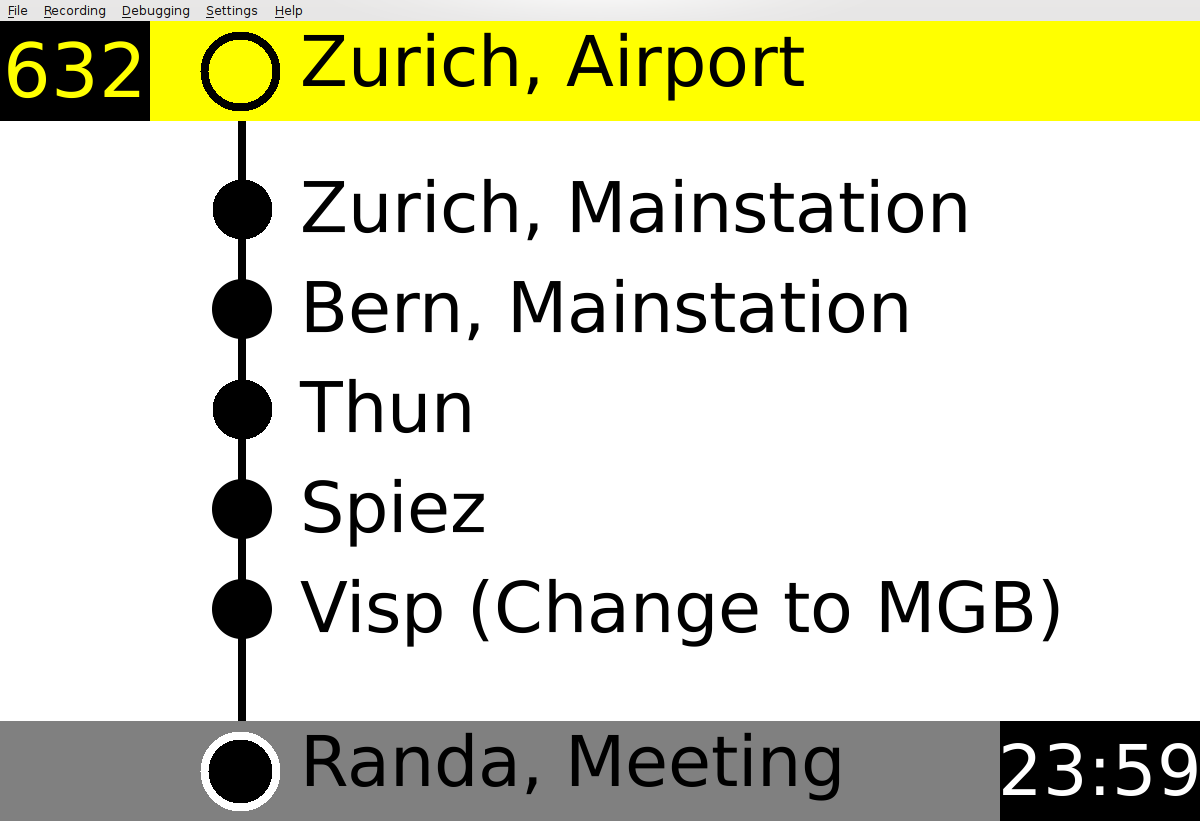KDE, families and Randa
Tuesday, April 8th, 2014First and foremost I’d like to thank the KDE e.V. that they invited me to extended board meeting in Berlin two weeks ago. I got some more insights in the board’s work and could participate in the fundraising workshop on Saturday. So what did we learn?
“Ask, ask again and ask for more” and “KISS – Keep it simple and smart”. I hope to be able to apply this and the other things we learned to the fundraising campaign for the Randa Meetings 2014 which we’re going to launch in the next weeks.
Another thing where I was quite active in the last weeks is the “recruitment” for people that should come to Randa this summer. As you of course already know, two of the topics this year are the KDE SDK and the porting of apps to KF5 and other platforms. Thus I tried to get in contact with KDE-Mac people and then also got in contact with people from Macports. I’m currently working on bringing the technical parts of the discussion back to KDE-Mac mailing list.
And I’m working further to bring Windows, Android and the aforementioned Mac people to Randa. So if you’re interested and I did not yet get in contact with you (under which rock were you hiding?;-) get in contact, please. One of my personal goals is it by the way to get some “foreign” machines to our CI park, namely Windows, Mac, Android and Co ;-). There e.g. the Macports.org CI people could be of valueable help.
On another topic or actually the middle one in the title above: I’m happy to tell you that this year we’ve already three or four participants registered for the Randa Meetings whom will bring their families with them to Randa. Don’t fear, none of the money of the KDE e.V. will be used to pay their accommodation or travel and food costs. They will pay for their families’ stay. But why do I think that this is so nice?
Because I think this is an important step and the right direction. A huge problem of many free software communities is the fact, that contributors leave after they get graduated or get families. So it’s (IMNSHO) only in the best interest of KDE if there are possibilities for KDE contributors to bring their families to KDE meetings. It is nice if you can hack on KDE software during the day and eat lunch and dinner with your family and spend the evening with them. And who knows probably we need to organize a day nursery in the coming years.
But what about the coming years and my family? First and foremost I’d like to write here a huge and humongous thank you to my family, the small and the big one and even some farther relatives. Without them I couldn’t organize these meetings in Randa. So as you may have already read some time back I decided to found an association for the Randa Meetings and each year since the founding I was searching for some local sponsors for some expense allowance for me and some other helpers. Do you have any idea what amount of work it is to cook for this crowd for a whole week. You won’t believe how much KDE and free software people eat ;-).
And to be honest for the coming years I plan to stabilize this expense allowance or even small wage even more. But don’t fear (again ;-). None of the money of the KDE e.V. or the planned fundraising campaign will land in my wallet! I just want to be able to keep the Randa Meetings alive for the next years (I roughly estimate to work one to one and a half month on the organization of a single edition of the Randa Meetings) and thus look for new opportunities. So if you have some ideas tell me or at least participate in this is short and tiny (takes around a minute to fill in) survey or poll about this topic. Would be nice to have it widespread…
But what’s next for the Randa Meetings beneath the fundraising campaign? In the coming days I plan to poke and email the people and groups that are already registered for the sprints in Randa that they should check their data, check their groups and see who is missing and who needs to be poked. We need to fix a more or less final budget till the end of April.
So stay tuned when we launch the fundraising campaign for the Randa Meetings and help us to spread the word. Thanks for reading and don’t forget to flattr me below ;-).
PS: This blog post already got a bit larger than planned but here is another PS ;-):
PPS: In the coming days I plan as well to check the wiki pages for the Randa Meetings and add some information about the some hardware present at this year’s meetings (e.g. touch screen, WeTabs, etc.) which you can use and I will add some additional information for families.













